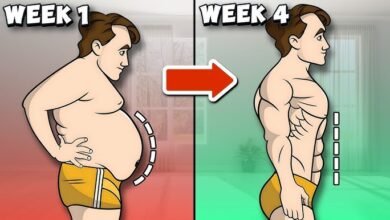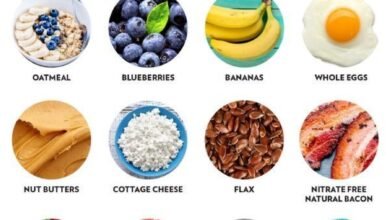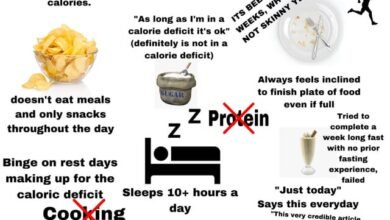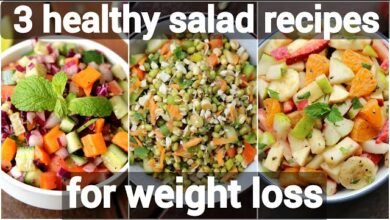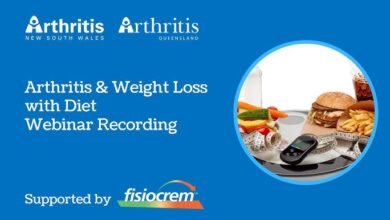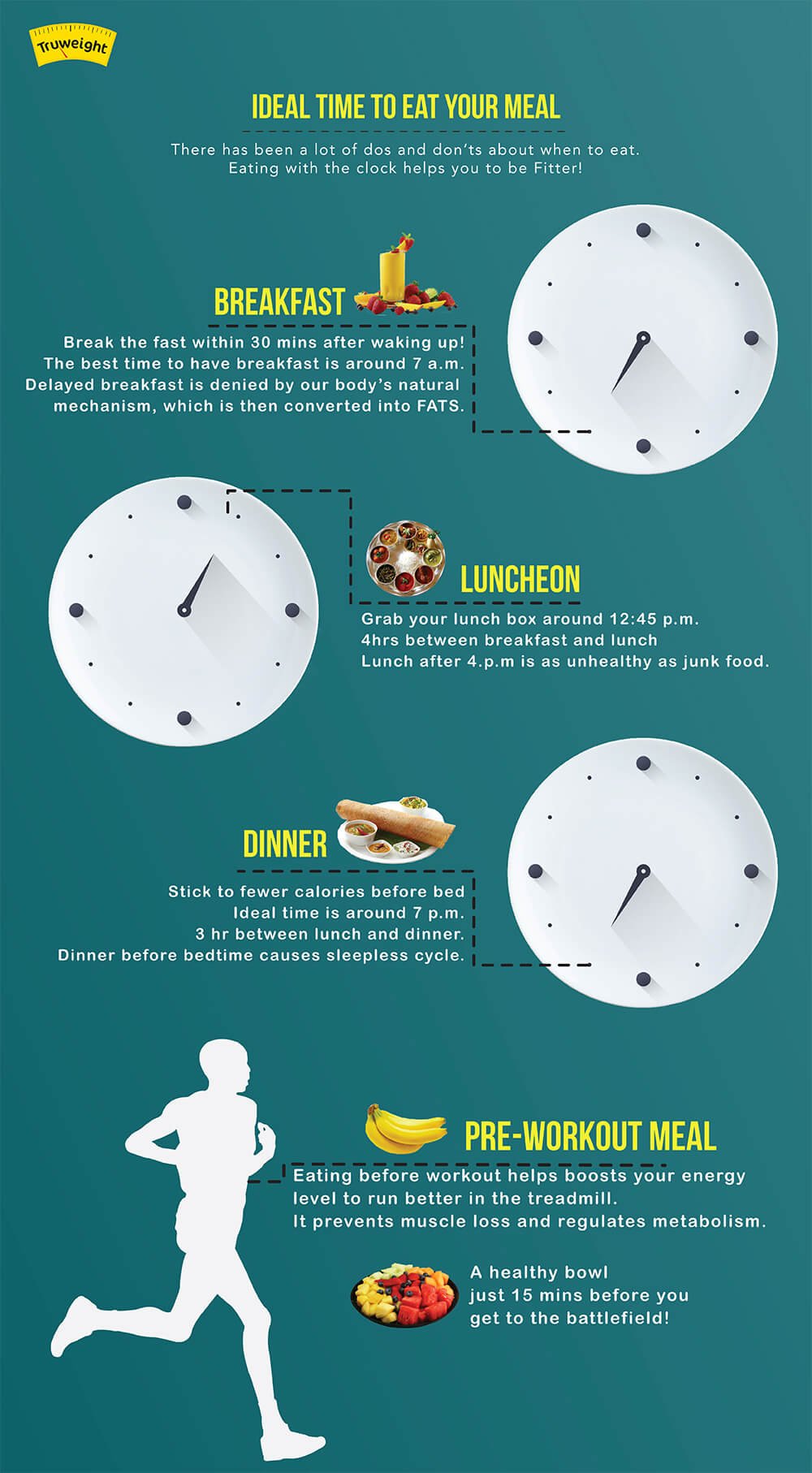
When is the Best Time to Eat for Weight Loss
The best time to eat for weight loss depends on various factors. Meal timing can significantly impact your weight loss journey.
Eating at the right times can help you manage hunger and boost metabolism. Many people struggle to find the best schedule for meals. Some prefer eating early, while others find late meals beneficial. Understanding your body’s needs is crucial. Research suggests that eating earlier in the day might help.
When is the Best Time to Eat for Weight Loss? To learn more…..
Breakfast can kickstart your metabolism. Lunch should be balanced and satisfying. Dinner should be lighter and earlier. These strategies can aid in weight management. Finding your ideal meal times can make a big difference. Let’s explore the best times to eat for effective weight loss.
Timing And Metabolism
Eating earlier in the day might help with weight loss. Breakfast and lunch are better for burning calories. Dinner should be smaller and earlier. This timing boosts metabolism and helps maintain energy balance.
Understanding the relationship between timing and metabolism can make a significant difference in your weight loss journey. By aligning your eating schedule with your body’s natural rhythms, you can optimize how your body processes food. This can lead to more efficient calorie burning and hormone regulation, essential components of effective weight loss.
Impact On Calorie Burning
The time you eat can influence how effectively your body burns calories. Eating earlier in the day when your metabolism is more active can lead to increased calorie burning. It’s like fueling a car before a long journey, ensuring you have energy when you need it most.
Consider shifting your largest meal to breakfast or lunch. This aligns with your body’s natural metabolic peak, helping you burn more calories throughout the day. Have you ever noticed feeling sluggish after a late-night meal? That’s your metabolism slowing down, making it harder to burn calories.
Role In Hormone Regulation
Hormones play a crucial role in how your body stores and burns fat. Eating at consistent times helps regulate hormones like insulin, which controls blood sugar levels. This can prevent those dreaded energy crashes and cravings.
Your body’s production of hormones like cortisol, which affects stress and appetite, follows a daily rhythm. Eating when these hormones are in balance can help manage hunger and improve mood. Have you ever felt unusually hungry at odd hours? It might be your body’s hormones signaling you to eat when it’s not optimal.
By paying attention to when you eat, you can harness the power of your metabolism and hormones. This simple adjustment can lead to more effective weight loss and a healthier lifestyle. Give it a try and see how your body responds.

Credit: www.instagram.com
Breakfast Importance
Breakfast is often called the most important meal of the day. It plays a crucial role in weight loss. Eating breakfast helps set the tone for the day. It can influence how you eat and feel throughout the day. Skipping breakfast might lead to overeating later. A nutritious breakfast can aid in managing weight effectively.
Kickstarting Metabolism
Eating breakfast helps kickstart your metabolism. This is the process your body uses to turn food into energy. A good breakfast can boost your metabolism early in the day. It helps burn calories more efficiently. A healthy morning meal keeps your energy levels steady. This helps you stay active and alert.
Balancing Blood Sugar Levels
A balanced breakfast helps maintain stable blood sugar levels. This prevents sudden spikes and drops in energy. It can reduce cravings for sugary snacks. Eating protein-rich foods in the morning helps with this. Foods like eggs, yogurt, or nuts are good choices. A stable blood sugar level aids in better weight management.
Lunch Timing
Eating lunch between 12 PM and 1 PM may help with weight loss. This timing aligns with the body’s natural rhythm. It can aid digestion and metabolism.
### Lunch Timing
Timing your lunch right can make a big difference when you are trying to lose weight. Eating lunch at the right time can keep your energy levels up and help you avoid those pesky afternoon cravings. But when exactly should you be eating lunch for the best results?
Midday Energy Boost
Having lunch around 12:30 PM to 1:00 PM can give you a much-needed energy boost. You might have noticed that feeling of fatigue that hits mid-morning. Eating too early or too late can make this worse.
A well-timed lunch can keep you alert and focused. Choose foods that are high in protein and fiber. Think grilled chicken salad or a quinoa bowl with veggies.
You might be surprised how a well-timed, balanced lunch can affect your afternoon productivity. Imagine tackling your tasks with renewed energy instead of feeling sluggish.
Preventing Afternoon Cravings
Eating lunch at the right time also helps you avoid afternoon cravings. You know the ones—they usually hit around 3 PM. This is often due to a drop in blood sugar levels.
If you eat lunch too early, you might find yourself reaching for unhealthy snacks later. On the other hand, eating too late can make you overeat because you are too hungry.
Timing your lunch well can keep your blood sugar levels stable. This means you are less likely to crave that cookie or bag of chips. Instead, you will feel satisfied and can stick to your weight loss goals.
Think about your own schedule and see if you can adjust your lunch timing. Just a small change might make a big difference in how you feel and your weight loss journey.

Credit: www.pinterest.com
Dinner Considerations
Choosing the right time for dinner can impact weight loss efforts. Timing affects digestion and metabolism, influencing how your body processes food. Make informed choices about when you eat dinner to support your weight loss goals. Consider the benefits and drawbacks of early and late meals. Also, understand how dinner timing can impact your sleep quality. These factors can guide your decisions for optimal weight management.
Early Vs. Late Meals
Eating dinner early may boost metabolism. Your body has more time to digest food before sleep. This can prevent fat storage overnight. Early meals can also reduce late-night snacking. They help maintain a calorie deficit essential for weight loss.
Late dinners can disrupt digestion. Your body might store more fat. Eating late often leads to poor food choices. Cravings for high-calorie snacks can sabotage weight loss. Late meals may also affect your body’s natural rhythm.
Effects On Sleep Quality
Early dinners support better sleep. Your body isn’t digesting food at bedtime. This can improve sleep quality. Better sleep can enhance weight loss. It helps regulate hunger hormones, reducing cravings.
Late dinners might disturb sleep. Digestive activity can cause discomfort. This can lead to restless nights. Poor sleep affects hunger hormones. It may increase appetite, hindering weight loss efforts.
Intermittent Fasting
Choosing the right time to eat can enhance weight loss during intermittent fasting. Eating earlier in the day helps improve metabolism and energy levels. Avoid late-night meals to prevent storing excess calories as fat.
Intermittent fasting has become a popular strategy for weight loss, offering a structured eating pattern that can align with your lifestyle. Alternating periods of eating and fasting, it provides a flexible approach to managing calorie intake. Many find this method not only effective but also surprisingly simple to integrate into their daily routine.
###
Popular Fasting Windows
There are several fasting windows people tend to follow, each with its own rhythm. The 16/8 method involves fasting for 16 hours and eating during an 8-hour window. Others prefer the 5:2 approach, where you eat normally for five days and significantly reduce calorie intake on two non-consecutive days.
Choosing a window that fits your lifestyle is key. If you’re a night owl, perhaps a later eating window suits you best. Morning people may find an early start beneficial, allowing them to enjoy breakfast and lunch before beginning their fast.
###
Benefits For Weight Management
Intermittent fasting can help you manage your weight by naturally reducing calorie intake. By limiting the hours in which you eat, you may find it easier to avoid unnecessary snacking. Over time, this can lead to a noticeable reduction in overall calorie consumption.
Furthermore, fasting periods can help regulate your body’s insulin levels. This can improve your body’s ability to burn stored fat, enhancing your weight loss efforts. Have you ever noticed how your energy levels seem more stable after a period of fasting?
When is the Best Time to Eat for Weight Loss to learn more….
This method also encourages mindful eating, as you become more aware of your hunger cues and eating habits. You might discover that what you once thought was hunger was just a habit of eating at a certain time. Could intermittent fasting be the tool you need to reach your weight loss goals?
Snacking Patterns
Snacking can be a double-edged sword in your weight loss journey. While snacks can help bridge hunger gaps, poor choices and timing can derail your progress. Understanding snacking patterns is crucial for anyone aiming to shed those extra pounds. Let’s dive into how you can make smarter snack choices and manage the timing between meals.
Healthy Snack Choices
Choosing the right snacks is key to staying on track with your weight loss goals. Opt for snacks that are nutrient-dense and low in calories. Fruits, nuts, and yogurt make excellent options.
Think about adding an apple or a handful of almonds to your mid-afternoon routine. These choices not only satisfy hunger but also provide essential vitamins and minerals.
Remember, the goal is not just to eat less, but to eat smarter. Ask yourself: are my snacks adding value to my diet or just empty calories?
Timing Between Meals
Timing your snacks can greatly impact your weight loss. Eating every three to four hours helps maintain energy levels and prevents overeating during meals.
Imagine it’s 10 a.m. and you’re starting to feel hungry. Having a small snack now means you won’t be ravenous by lunchtime, which helps control portion size.
Finding the right balance between meals and snacks is a personal journey. How often do you find yourself reaching for a snack? Adjusting these patterns can lead to healthier habits.
Your snacking habits can play a significant role in your weight loss strategy. By making mindful choices and timing snacks effectively, you’re setting yourself up for success.
Cultural Eating Habits
Cultural eating habits influence our food schedules and choices. Different cultures have unique traditions around meals. These habits can impact weight loss efforts. Understanding these can help create better eating strategies. Let’s explore how traditional meal times and personal needs affect weight loss.
Traditional Meal Times
Many cultures have set meal times. Breakfast, lunch, and dinner are common. In Spain, lunch is the main meal, eaten around 2 PM. Dinner is lighter and served late, often after 9 PM. In Japan, meals are usually small and frequent, focusing on fresh ingredients. Italy celebrates food with long, social meals, especially at dinner. These traditions shape how people eat daily. Recognizing these patterns helps in planning meals for weight loss.
Adapting To Personal Needs
Personal needs play a crucial role in meal timing. Some people feel hungry more often. Others might need fewer meals. It’s important to listen to your body. Understand hunger signals and energy levels. Adjust meal times to fit your lifestyle. This approach can help maintain a balanced diet. It can also support weight loss goals more effectively. Everyone’s schedule is different, so flexibility is key.

Credit: www.pinterest.com
Personalized Meal Timing
The idea of personalized meal timing is gaining momentum in the world of weight loss. The truth is, there isn’t a one-size-fits-all approach to when you should eat. By tailoring meal times to your body’s unique rhythms, you can maximize your weight loss efforts. Let’s dive into how you can create a meal schedule that suits your lifestyle.
Listening To Body Cues
Your body is the best guide for determining when to eat. Tuning into your hunger signals can be a game-changer. Instead of sticking to rigid meal times, ask yourself: Am I truly hungry? Or am I just bored or stressed?
Consider keeping a food journal to track your hunger levels throughout the day. This can help you identify patterns and pinpoint the best times for meals. You might notice you’re hungriest after a workout or mid-afternoon. Adjusting your eating schedule accordingly can help you avoid overeating.
It’s also vital to recognize the difference between hunger and cravings. Cravings might be for specific foods, while hunger is a general need for nourishment. Knowing this difference can prevent you from eating out of habit rather than necessity.
Adjusting Based On Activity Levels
Your daily activities should play a role in your meal timing. If you have a busy morning, a hearty breakfast might be essential to fuel your day. Conversely, a lighter dinner could be better if your evenings are more relaxed.
Consider how your energy levels fluctuate with your activities. After a workout, your body might need a nutrient-rich meal to recover. On a day with less physical activity, smaller meals might suffice.
Think about the timing of your exercise. Eating after a workout can help repair muscles and replenish energy stores. This doesn’t mean you need a full meal; sometimes a small snack is enough to keep you going.
Do you notice a dip in energy mid-afternoon? A small, balanced snack could be the answer. By aligning your meals with your activity levels, you can optimize your energy and support your weight loss goals.
Frequently Asked Questions
What Time Is Best To Eat When Losing Weight?
Eat breakfast within an hour of waking up. Have smaller, balanced meals every 3-4 hours. Avoid late-night eating.
Does Not Eating After 7pm Help Lose Weight?
Not eating after 7pm can help reduce calorie intake, potentially aiding weight loss. Eating earlier may improve digestion and sleep quality, which can support weight management efforts. Consistency and overall daily calorie balance remain crucial factors for effective weight loss.
What Is The Best Eating Schedule For Losing Weight?
Eat balanced meals every 3-4 hours to boost metabolism. Include protein, healthy fats, and fiber. Avoid late-night snacking. Drink plenty of water and limit sugary drinks. Consistency and portion control are crucial for effective weight loss.
What Is The Best Meal Timing For Fat Loss?
Eat balanced meals every 3-4 hours. Prioritize protein and fiber at breakfast. Avoid late-night eating. Stay consistent.
Conclusion
Eating at the right time supports your weight loss journey. Breakfast jump-starts metabolism. Lunch keeps energy levels stable. Dinner should be light and early. Avoid late-night snacking. Listen to your body’s hunger cues. Consistency matters in meal timing. Healthy habits lead to better results.
Plan your meals wisely. Make mindful choices daily. Achieve your weight loss goals with balanced eating.
